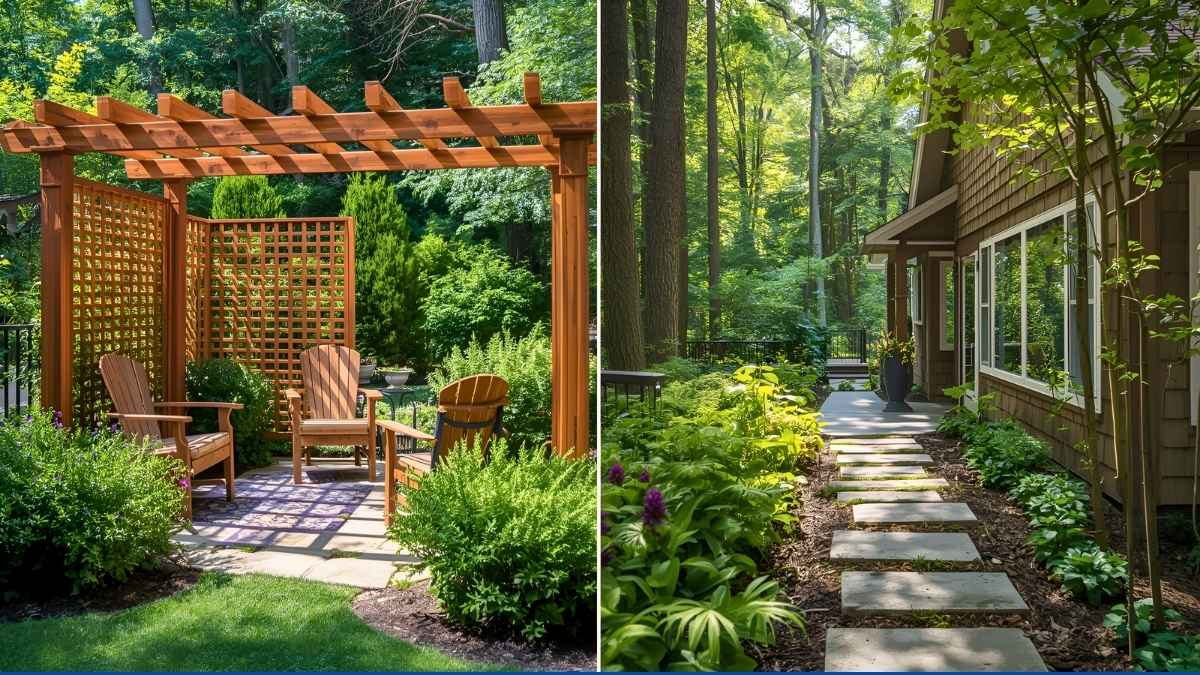Join on WhatsApp
Get the latest updates directly on WhatsApp – motivation, news & more!
Gardens are often seen as places of relaxation and beauty, but when issues arise between neighbours over shared boundaries, overhanging trees, or noisy tools, that peace can quickly turn into tension. If not addressed early and calmly, small disagreements can escalate into lasting neighbourhood feuds. Fortunately, with the right approach, most garden disputes can be settled without drama or legal action. Here are some top tips for resolving garden disagreements in a peaceful and respectful way.
Understand What the Dispute Is Really About
Before jumping into action, take a step back to consider what’s really causing the disagreement. Is it a specific issue like an overgrown hedge, or is it part of a larger pattern of misunderstandings? Getting to the heart of the problem allows you to respond in a measured and thoughtful way rather than reacting emotionally or defensively.
Approach Your Neighbour in a Friendly Way
It’s always best to start with a calm and informal conversation. A friendly chat over the fence or a polite knock at the door often works better than a letter or complaint. Try to avoid confrontation and don’t bring it up when emotions are running high. A simple “Would you have a moment to talk about something?” can open the door to a productive discussion.
Stay Calm and Avoid Blame
When you do bring up the issue, try to focus on how it affects you rather than what your neighbour has done wrong. Avoid blaming language and instead use “I” statements. For example, saying “I’ve noticed the hedge has grown quite a bit and it’s making it hard for me to get my bins through” is much more likely to lead to cooperation than “You’ve let your hedge get out of control.”
Listen to Their Side of the Story
You might feel frustrated or even angry, but listening is just as important as speaking. Give your neighbour time to explain their perspective. They may not be aware there’s an issue, or they might have their own concerns that haven’t been voiced. Open dialogue is the key to finding a compromise that works for everyone.
Be Willing to Find a Middle Ground
Not every dispute has a perfect solution, and sometimes the best outcome is one that involves a bit of give and take. If you want a tree removed and they’d prefer to keep it, maybe regular pruning is a fair compromise. The goal should be to find a resolution that respects both sides, even if it’s not your ideal outcome.
Check Your Boundaries and Responsibilities
Before taking any action, make sure you’re clear on who is responsible for what. Property boundaries, fence ownership, and tree maintenance can all be sources of confusion. Check your title deeds if needed or look at past agreements. Knowing the facts helps keep the conversation grounded and avoids unnecessary assumptions.
Put Agreements in Writing If Necessary
For more formal or ongoing agreements, such as shared fence repairs or scheduled hedge trimming, it might be wise to write down what you’ve agreed on. This doesn’t need to be a legal document just a short, friendly note summarising the conversation can help avoid future misunderstandings.
Avoid Making Threats or Involving Legal Action Too Soon
It’s tempting to jump straight to legal rights if the situation isn’t going your way, but this often backfires. Threats can damage the relationship permanently and may make the problem worse. Always try informal resolution first. Legal steps should be a last resort, not a first option.
Involve a Neutral Mediator If You Can’t Agree
If things become too tense or you’re unable to find common ground, a neutral third party may help. Some councils offer mediation services, or you might find a mutual friend or neighbour who can help facilitate the conversation. Having someone impartial involved can ease tension and help both sides feel heard.
Focus on Long-Term Peace, Not Short-Term Victory
In the heat of the moment, it’s easy to get caught up in who’s right or wrong. But remember that you and your neighbour will likely be living next to each other for many years. Preserving a good relationship is often more valuable than “winning” a dispute. A bit of patience now can save years of awkwardness or hostility later.
Consider Professional Help for Complex Issues
If your dispute involves serious concerns like potential damage from a large tree, drainage issues, or boundary uncertainty it may be best to consult a professional. Surveyors, arborists, or local council officers can often provide clear, unbiased advice that helps resolve matters more quickly and confidently.
Keep Communication Open After the Dispute
Even after you’ve resolved the issue, keep things friendly. A follow-up wave, a quick hello, or a casual check-in helps rebuild any tension that may have developed. Regular, light communication goes a long way in preventing future issues and keeping the relationship neighbourly.
Set a Good Example in Your Own Garden
Maintaining your own garden to a reasonable standard can influence how your neighbours respond in kind. Respect shared boundaries, keep trees and hedges trimmed, and let neighbours know if you’re planning noisy work. When you act with consideration, it encourages a culture of mutual respect on your street.
Avoid Turning Small Issues Into Big Problems
Sometimes it’s worth asking yourself whether the issue is serious enough to pursue. Will it matter in a month? A year? Not every garden annoyance needs to become a conflict. If it’s something you can live with or work around, letting it go might be the most peaceful solution.
Don’t Involve Other Neighbours Unless Absolutely Necessary
Gossiping or trying to rally others to your side usually backfires. It can create cliques, spread misinformation, and make the original issue much harder to resolve. Keep the conversation between you and the neighbour directly involved. If others are brought in, it should only be for support or mediation, not for taking sides.
Conclusion
Garden disputes can test even the most patient of people, but with a calm approach and a willingness to listen and compromise, most can be resolved peacefully. The key is to keep communication respectful, focus on solutions, and remember that maintaining a positive relationship with your neighbours is often more important than any one issue. A bit of empathy and patience goes a long way — and helps keep your garden, and your street, a more peaceful place to be.




